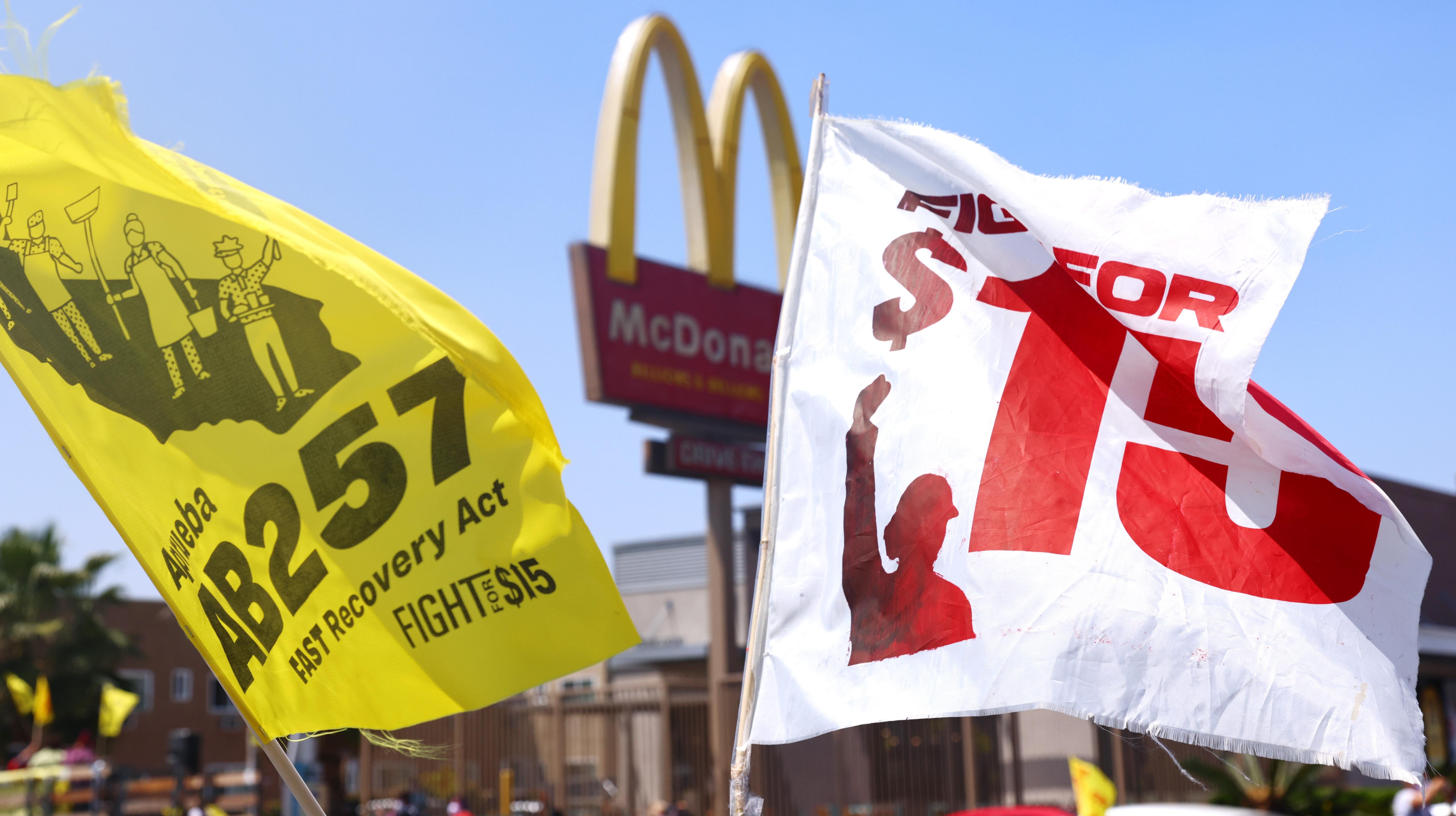California Fast Food Workers Are Being Shortchanged Again
The fast food coalition Save Local Restaurants collected enough signatures to block the FAST Recovery Act.
When California governor Gavin Newsom signed the FAST Recovery Act back in September, it was considered groundbreaking legislation for the fast food industry because of its generous minimum wage proposal and newly implemented fast food council. But it had plenty of opposition along the way from politicians, restaurant owners, and franchisees who questioned not only how it would affect the bottom line of businesses in California, but also what would happen if the movement spread through the industry to other states. According to The Los Angeles Times, those opposers successfully gathered more than one million signatures to block the law from going into effect on January 1, and if the petition is approved, fast food workers will have to wait years to see changes to their industry go into effect.
California’s FAST Recovery Act, explained
The FAST Recovery Act, or AB 257, was set to create a 10-member Fast Food Council made up of worker delegates, employer representatives, and two state officials who will set the standards for minimum wages, hours, and working conditions. Along with the statewide Fast Food Council, the bill allows cities and counties in California with populations of 200,000 or more to create their own local councils to provide recommendations to the statewide council.
According to the AP, an amendment to the legislation would cap any increased minimum wage for fast food workers at chains with more than 100 restaurants at $22 an hour next year with cost of living increases built in—that's a big jump from the state's current minimum wage of $15.50. Supporters of the bill across the country agreed that the legislation's initial passing was a victory for the industry as a whole, setting precedent for similar actions to pop up in other states.
Ultimately it was the fast food coalition Save Local Restaurants that submitted the signatures to put the law to a public vote. If at least 623,000 signatures are validated, a process that according to The Los Angeles Times could take weeks, then the law will not go into effect and the referendum will be put on the November 2024 ballot.
Why restaurant workers need action now
The fight for a higher minimum wage has been going on for decades. In particular, the group Fight for $15 has been at it for 10 years, building a movement since 2012 to make the minimum wage $15. To clarify: for the past 10 years, as the cost of living has continued to increase, this group has been fighting for people like fast food workers to reach an amount that was deemed livable 10 years ago, and still they need to fight for that amount. The federal minimum wage has been $7.25/hour since 2009. Washington D.C. boasts the highest minimum wage in the country at $16.10/hour, not much higher than the wage Fight for $15 has spent years calling for.
As it currently stands, the minimum wage, both federally and at the state level, can only be changed when legislation is approved through Congress and the president or governor. It's a process that relies on people who get paid far beyond the minimum wage to decide what is livable, and it can take a very long time. If this law does indeed get put to a referendum vote and that referendum then passes the proposed $22/hour may not even be a livable wage by the time it goes into effect in 2025.
With the Fast Food Councils proposed by the FAST Recovery Act, the workers who are directly affected by the minimum wage would have a say in their pay and could implement more efficient systems for bringing those higher wages to workers. With inflation causing the cost of everything to rise, there's little time for waffling on these changes for those who need it most.
When election season rolls around in 2024, Californians should be sure to advocate for this referendum. Fast food workers deserve fair pay and a seat at the table to have a say in their livelihood.
